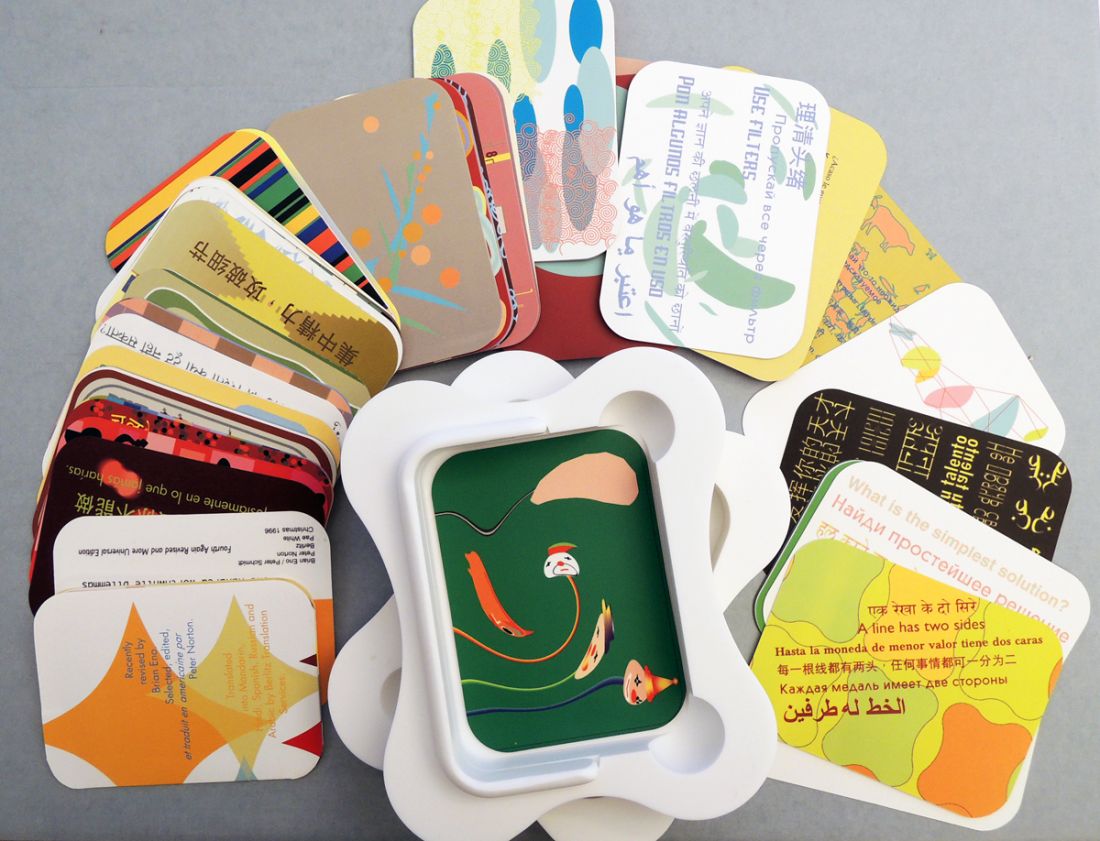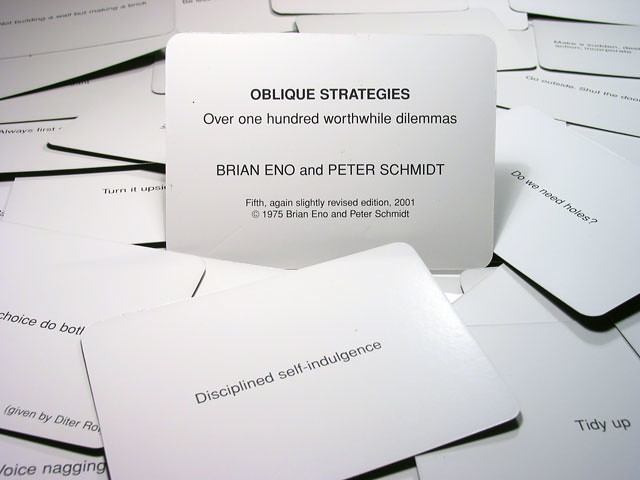

So, we all know that repetitive practise is the activity which fixes music in head, hands, eyes and ears. These are my own responses to the cards, and are simply suggestions and perhaps an inspiration to others to try this approach. I have taken just a few Oblique Strategies and considered how they might be used in day-to-day practising, and also in preparation for performance.

Oblique Strategies Cards can also be used in music practice to help enliven practising or shine a new light on an issue which may have been causing one problems, or just to help one think and act more creatively and spontaneously during practice. These brief gnomic aphorisms, selected randomly, can bring new or unexpected ways of thinking to seemingly intractable problems and difficulties, not just those encountered during creative processes such as writing, composing or painting/making art, but also in everyday life. The Oblique Strategies cards were most famously employed by Brian Eno during the recording of David Bowie’s Berlin triptych Low, “Heroes” and Lodger in the 1970s. Each card offers an aphorism intended to help artists (particularly musicians) break creative blocks by encouraging lateral thinking. Oblique Strategies (subtitled Over One Hundred Worthwhile Dilemmas) is a deck of 7 by 9 centimetres (2.8 in × 3.5 in) printed cards in a black container box, created by Brian Eno and Peter Schmidt and first published in 1975.


 0 kommentar(er)
0 kommentar(er)
